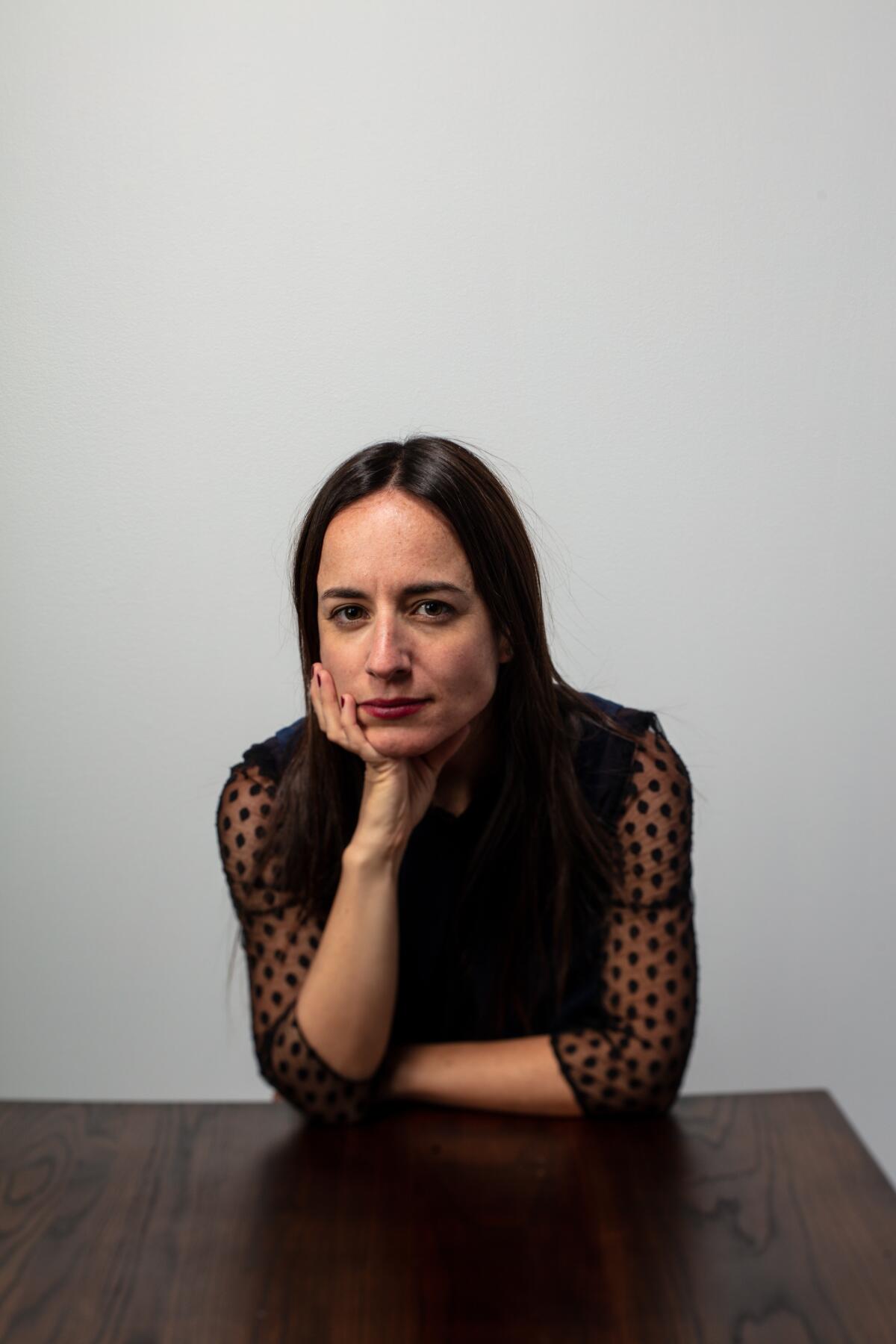‘The Mole Agent’ goes in search of elder abuse but finds a charming portrait of aging
As is often the case in documentary filmmaking, writer-director Maite Alberdi didn’t quite know what she would uncover when she started shooting “The Mole Agent.” What began as a covert investigation into possible elder neglect at a nursing home outside Santiago, Chile, evolved into a warm, wistful, often amusing portrait of growing old — including such issues as navigating loneliness, mental and physical diminution, friendship and even the prospect of love.
The film follows then-83-year-old Sergio Chamy, a bright, dapper and compassionate widower hired by a gruff detective, Romulo Aitken, to go undercover in the senior facility. The plan: Chamy is to pose as a new resident and, once moved in, search for signs of the mistreatment alleged by Aitken’s client, the daughter of one of the nursing home’s longtime occupants. Suffice to say, surprises abound.
The Envelope spoke to the open, enthusiastic Alberdi via Zoom from her home in Santiago, about the making of “The Mole Agent,” which has been nominated for an Academy Award.
Congratulations on your Oscar nomination! How did you feel when you first heard about it?
I was shocked. We did not expect it. It was amazing!
As a documentary, the film feels more observational than investigatory or revealing. How did you choose how to shape the narrative?
Our [initial] goal was to construct a kind of film noir or thriller-like story completely focused on the case, the clues and how and what Sergio discovered. The client was also, for me, a very important character: the sort of femme fatale who sets the mission into motion.
In the end, though, we constructed the narrative completely in editing, because I had no control of that part of it during filming. For example, I knew what Romulo was going to ask of Sergio, but I didn’t know how Sergio was going to react [to his marching orders] or how he was going to function once he was living inside the retirement home. Also, while shooting, I couldn’t give Sergio any instructions, since I had to treat him as if we didn’t know each other — like he was just another resident.
Only when Sergio started to commit to his mission could I see how the narrative might change from what I had originally envisioned. We also had to take out any focus on the client, because it was super-difficult to get the access to shoot her.

Why do you think the nursing home allowed you in to film to begin with? It seemed like you had full access.
We went to the retirement home … and said that we wanted to make a film about old age and how people were living there. They watched another film I’d made about a retirement home [the 2016 documentary short “I’m Not From Here”] and loved it, so they opened the doors to us because they assumed we were going to do something similar. In the end, the film is not so different than the one we told them we were making at the start.
What was the nursing home’s reaction when they learned the truth about why you were there?
When the film was finished, we decided to show it to them and tell the truth. They were our first audience — and it was great. They loved the film and felt that it represented them so well that now they’re promoting it. It was a relief.
And they didn’t feel deceived?
No … [though] I don’t understand how they never suspected.
Did you ever think that if the place really did have something to hide they wouldn’t have let you film there to start?
All the time. But it was a good sign when they allowed us to enter. At the same time you could say, “Well, if you put a camera on a place [like that], they’re going to be on their best behavior.” But they can’t be “acting” for four months. [Filming began two weeks before Sergio arrived.] I wasn’t there all the time; I shot five days a week, from noon to 8 p.m. But Sergio was living there for three months and didn’t see anything bad either. If he did, he would have said so, but he loved it there.
With its engaging main character, fish-out-of-water setup and potential mystery elements, the film would seem like a natural to be remade as a narrative feature. Any plans for that?
Actually, we are closing in on a deal to do just that. In the beginning, I wanted to develop it myself. But then I realized I’m too close to my film and that, if I did remake it, I would probably do it in the same way. I needed to “set it free” so it could become a creation different from mine.
More to Read
From the Oscars to the Emmys.
Get the Envelope newsletter for exclusive awards season coverage, behind-the-scenes stories from the Envelope podcast and columnist Glenn Whipp’s must-read analysis.
You may occasionally receive promotional content from the Los Angeles Times.










